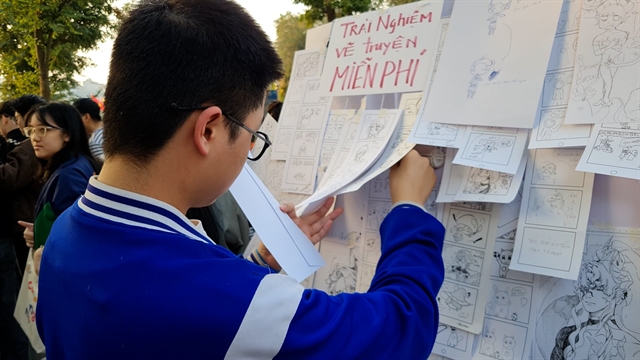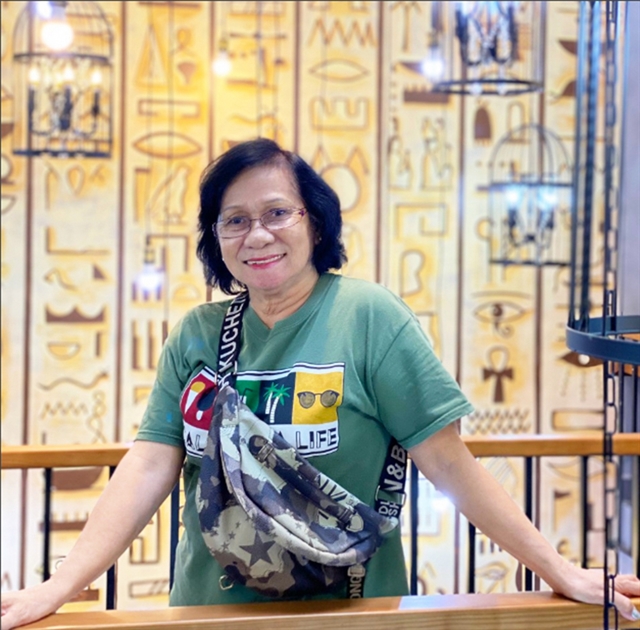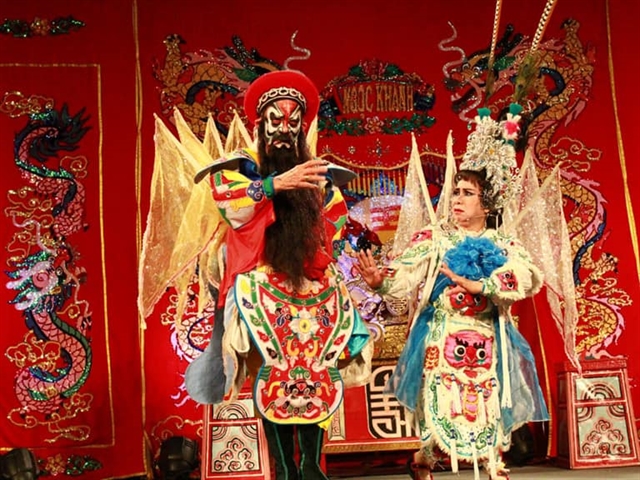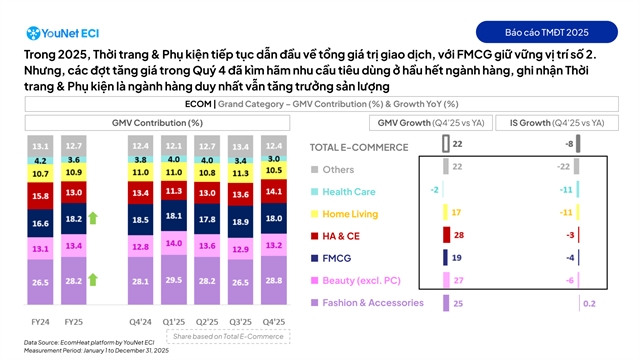 Life & Style
Life & Style

 |
| Tuồng artist Ngọc Khanh. — Photo phunuonline.com.vn |
Traditional tuồng (classical drama) artist Ngọc Khanh is founder of the Ngọc Khanh Tuồng Troupe that is among the very few traditional art units in HCM City. The troupe is striving to preserve and develop the art genre.
Khanh spoke about her efforts to keep the traditional art of tuồng alive.
Will your troupe perform at this Lunar New Year season?
We have only one show at Lăng Ông - Bà Chiểu Temple in HCM City at the new year's ritual ceremonies. I don't know about the other troupes but I think it is difficult for them to have more chances of performing tuồng.
As one of few tuồng troupes in HCM City working to preserve and contribute to the development of this traditional art, do you have the chance now to hope for tuồng development?
I don't think so. Tuồng needs audience and strong support from the State in many aspects. But our troupe doesn't receive any investment from the state budget for traditional art development. We have few chances to perform tuồng.
I had to sell two houses and I have to earn living tailoring theatre costumes and backdrops.
I am always in a situation of continuing debt. The troupe's leading actors have hold other jobs such as manicurist; motorbike driver or hired worker. Most of us live in tiny rental housing units.
During the pandemic period we were unemployed and we were hungry - in the literal meaning. The HCM Tuồng Theatre is in the same situation; they do receive the minimum monthly salary from the State, however this salary is below the average living standard.
We simply don't have funds to invest in tuồng performance. I think, in this situation, tuồng will soon fade away. Even the proposal to submit tuồng to UNESCO to be recognised as an intangible cultural heritage has not been made.
If we want this type of traditional art to continue, long-term funding is required.
Have you ever had the chance to introduce tuồng outside Việt Nam?
Many years ago, a Vietnamese-American postgraduate student approached me to ask for information about the art of tuồng for her doctoral thesis. We worked together for several months before she returned to the US and completed her thesis.
Later she introduced me to professor Nguyễn Thuyết Phong. He has been teaching Vietnamese music in universities across the US and he is a member of the US national jury of arts.
He discussed with me many times and believed in my knowledge, so he invited me to perform and lecture to the students there. This trip is considered a cultural exchange.
I went on my first tour long ago, in 1974, to France and Canada. It was in the Francophone World Youth Congress. At that time, international friends were also interested in the traditional Vietnamese tuồng.
 |
| Artist Ngọc Khanh (right) in a tuồng performance. — Photo courtesy of Ngọc Khanh Tuồng Troupe |
Why is it that tuồng receives so little public attention?
Tuồng itself also has limitations, making it difficult to popularise. For example, hát bội often uses ancient Vietnamese lyrics and old stories. The audience cannot really understand the meaning, so they don't have find it interesting.
In the past, the audience for tuồng was well-educated people, the elite class. Now there are few people who understand or like old languages, so I'm pessimistic about the future of tuồng.
What is the solution to solve this, in your opinion?
The best way to keep tuồng alive is to put it in a museum to preserve it, and teach it to the young generation like in Japan and South Korea.
Teaching will help people who want to get to know more about meaning of the sentences, form of acting, facial makeup and character personality. If people understand it, they will like it.
Plus, the State should also call for investment in tuồng. I think there are different ways to popularise the art to the public such as performing tuồng at traditional festivals or organising permanent tuồng performances.
Teaching tuồng to the young generation and recruiting young actors are both necessary steps to preserve and develop the art. There are almost no tuồng actors from outside the family tradition. — VNS




